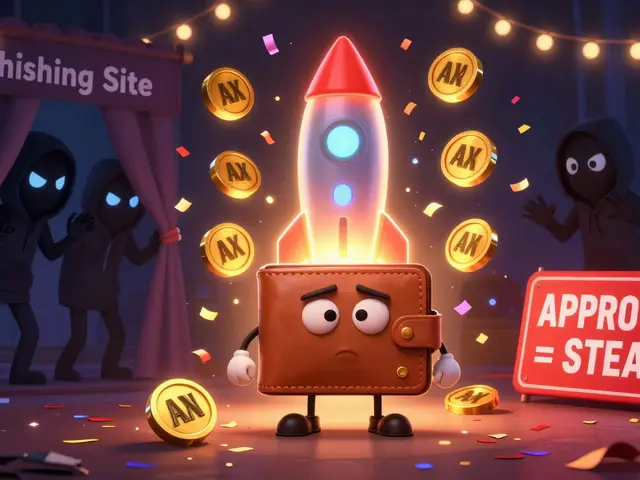GCC Crypto Policy Comparison Tool
This interactive tool shows how different Gulf Cooperation Council (GCC) countries approach cryptocurrency regulation as of 2025.
Kuwait
Key Regulations:
- Payments: Virtual assets cannot be used as payment method
- Investments: No crypto-related investment products or advisory services
- Licensing: No licenses for crypto-exchanges, wallets, or custodial services
- Mining: Illegal activity with potential criminal prosecution
Recent Developments:
April 2025 – Ministry of Interior shuts down 1,000+ mining sites
GCC Regulatory Overview
| Country | Policy | CBDC Status |
|---|---|---|
| Kuwait | Ban | Feasibility Studies |
| Saudi Arabia | Regulated | Pilot SAR-CBDC |
| UAE | Permissive | Multiple CBDC Pilots |
| Bahrain | Regulated | Exploratory Studies |
| Qatar | Transitioning | None Yet |
When the Central Bank of Kuwait announced an absolute prohibition on all cryptocurrency activities in July2023, the Gulf region’s regulatory map snapped into a new shape. The ban covers payments, investments, mining and any service that touches virtual assets, making Kuwait the most restrictive GCC jurisdiction as of 2025. This article unpacks the legal scaffolding, the enforcement push‑back, the economic ripple effects, and how the policy compares with neighbours that are racing toward digital‑currency pilots.
1. The Legal Framework Behind the Prohibition
Kuwait’s crypto clamp‑down did not rely on a single decree. Four government bodies issued coordinated circulars that together form a de‑facto ban:
- Central Bank of Kuwait - circulars to all banks, financing firms and exchange companies prohibiting any crypto‑related activity.
- Capital Markets Authority (Kuwait) - Circular No.10 of2023 outlawing crypto investments and related advisory services.
- Insurance Regulatory Unit - Circular No.6 of2023 forbidding insurers from underwriting crypto‑related risks.
- Ministry of Commerce and Industry & Minister of State for Youth Affairs - Ministerial Circular No.1 of2023, reinforcing the prohibition across commercial licensing.
All four circulars cite the same AML/CFT rationale: compliance with Financial Action Task Force Recommendation15, which urges jurisdictions to prevent virtual assets from being used for money‑laundering or terror financing. The ban’s four pillars are clear:
- Payments - virtual assets cannot be used as a payment method or recognised as legal tender.
- Investments - no crypto‑related investment products, advisory services or brokerage licences.
- Licensing - authorities will not issue licences for crypto‑exchange, wallet or custodial services.
- Mining - all mining activities are illegal, with penalties ranging from fines to criminal prosecution.
2. Enforcement: From Statements to Shutdowns
April2025 brought the first high‑profile enforcement wave. The Ministry of Interior, through its General Department of Security Relations and Media, issued a nationwide statement confirming that crypto mining violates multiple existing statutes, including LawNo.56 of1996 (Industry Law) and LawNo.37 of2014 (CITRA). Over 1,000 illicit mining sites were identified, many operating in residential districts and industrial zones alike.
Why the crackdown? Authorities highlighted three concrete harms:
- Excessive electricity consumption - Bitcoin mining alone was estimated to swallow 140,336GWh per year, more than the total annual demand of Ukraine.
- Threats to grid stability - illegal rigs overloaded local substations, prompting occasional brownouts that endangered public safety.
- Legal breach - mining contravened the Penal Code (LawNo.31 of1970) and could be treated as a felony.
Violators face seizure of equipment, hefty fines (up to KWD10,000 per rig), and possible imprisonment. The Ministry of Electricity, Water and Renewable Energy continues to monitor power‑usage anomalies as an early‑warning system for hidden farms.

3. Economic Angle: A Lost Mining Goldmine?
Kuwait once ranked as the world’s cheapest spot for Bitcoin mining, with 2022 cost estimates around $1,400 per BTC thanks to heavily subsidised electricity. By contrast, miners in Texas faced $18,000 per BTC. The ban therefore foregoes a potentially lucrative revenue stream.
Pro‑mining voices argue that the country could capture billions in foreign exchange, create high‑skill jobs, and position Kuwait as a regional hub for crypto data‑centres. The government’s counter‑argument leans on energy security: even with cheap power, the sheer scale of mining would strain the national grid and clash with Kuwait’s climate‑change commitments.
4. Kuwait vs. the Rest of the GCC
While Kuwait doubles down on prohibition, its neighbours have taken divergent paths. The table below snapshots each country’s stance as of late2025.
| Country | Crypto Policy | CBDC Activity | Key Regulatory Body | Recent Development |
|---|---|---|---|---|
| Kuwait | Kuwait crypto ban - absolute prohibition on payments, investments, mining and services. | Feasibility studies underway. | Central Bank of Kuwait (CBK) | April2025 - Ministry of Interior shuts down 1,000+ mining sites. |
| Saudi Arabia | Regulated environment - licensing for exchanges, crypto‑asset funds allowed. | pilot SAR‑CBDC (digital Riyal) in select retail tests. | Saudi Central Bank (SAMA) | 2024 - Launch of regulated crypto‑asset fund framework. |
| UAE | Permissive - Dubai International Financial Centre (DIFC) and Abu Dhabi Global Market (ADGM) issue licences. | Multiple CBDC pilots (e‑dirham, UAE‑Fed). | Central Bank of UAE | 2025 - Expansion of crypto‑asset sandbox. |
| Bahrain | Regulated - Bahrain Monetary Authority licences exchanges and custodians. | Exploratory CBDC studies. | Bahrain Monetary Authority (BMA) | 2024 - Introduction of crypto‑asset framework. |
| Qatar | Transitioning - Qatar Financial Centre (QFC) drafting digital‑asset law, expected 2025 Q2. | None yet. | QFC Regulatory Authority | 2025 - Draft law on crypto‑services under review. |
In short, Kuwait stands alone in the GCC as the only jurisdiction that bans crypto outright, while every neighbour is either regulating it or building a sandbox for innovation.
5. Future Outlook: CBDC or Continued Prohibition?
Despite the hard line on private crypto, the Central Bank of Kuwait is quietly exploring a sovereign digital currency. Feasibility studies aim to create a Kuwait‑CBDC that could coexist with the ban, offering a state‑controlled means of digital payments without jeopardising AML controls.
Two legislative moves reinforce the traditional‑finance focus:
- The Sukuk Law - clarifies legal status for Islamic bond instruments, boosting Kuwait’s role in regional Islamic capital markets.
- The Financing & Liquidity Law - authorises up to KWD30billion (≈USD97billion) in public debt, signalling confidence in conventional borrowing tools.
These developments suggest that while private crypto remains barred, Kuwait may still reap benefits of digital finance through a state‑issued token that aligns with Shariah principles and AML standards.
6. What Residents and Investors Should Know
If you live in Kuwait or plan to do business there, keep these practical pointers in mind:
- Don’t accept crypto for payment. Banks will flag any transaction involving virtual assets.
- All crypto‑exchange licences are void. Using offshore platforms does not protect you from local enforcement if the activity is detectable.
- Mining equipment purchased locally is likely to be seized. The Ministry of Electricity monitors abnormal power draws.
- Public awareness campaigns warn of fraud and volatility. Treat any “crypto investment” pitch with extreme caution.
- Watch for updates on the upcoming CBDC study - it may open a regulated channel for digital payments in the coming years.
In essence, the safest route is to stay clear of private crypto activities while keeping an eye on official digital‑currency initiatives that could offer a compliant alternative.
Frequently Asked Questions
Is buying Bitcoin illegal in Kuwait?
Yes. The Central Bank of Kuwait’s circular explicitly forbids any investment or trading of Bitcoin and other virtual assets. Violating the rule can lead to fines or criminal prosecution.
Can I mine cryptocurrency at home in Kuwait?
No. Mining is classified as illegal activity under multiple Kuwaiti laws, including the Industry Law and the Penal Code. The Ministry of Interior has already shut down more than a thousand illegal farms.
What happens to crypto‑related businesses operating in Kuwait?
All licences for crypto exchanges, custodians, or advisory services have been cancelled. Existing firms must cease operations or relocate abroad; otherwise they face asset seizure and legal action.
Is there any chance the ban will be lifted?
So far, the government has strengthened the ban, especially after the 2025 mining crackdown. While a sovereign CBDC is under study, a reversal on private crypto looks unlikely in the near term.
How does Kuwait’s stance affect regional crypto investors?
Investors based in Kuwait must use foreign jurisdictions to engage with crypto, which adds compliance complexity and tax considerations. The strict stance also pushes regional talent toward more permissive markets like the UAE or Saudi Arabia.





Write a comment